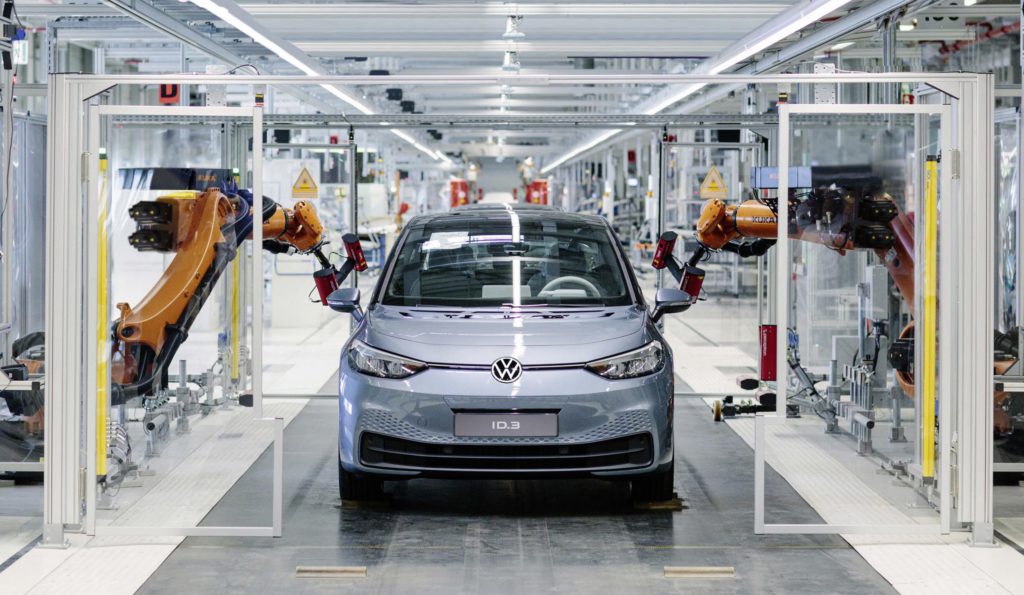Volkswagen’s ID.3 ‘will offer a better TCO than traditional vehicles’
13 March 2020

13 March 2020
Volkswagen (VW) is marketing its first mass-produced battery-electric vehicle (BEV), the ID.3, as a cheaper alternative to traditional engines in terms of total cost of ownership (TCO).
The model will also become the first ′updateable' electric car from the German manufacturer, with the initial units released this summer installed with the latest software profiles. In subsequent months, the digital functions will be regularly updated.
VW currently has 30,000 pre-orders for the ID.3 to fulfil throughout Europe.
TCO belief
While BEVs are traditionally more expensive than their petrol and diesel counterparts, VW believes that owning an ID.3 will prove to be cheaper for drivers in the end. According to the carmaker, the basic version, with a range of 330 kilometres, costs less than €23,430 in Germany – following the deduction of the environmental bonus (€6,000), making it at least as inexpensive as comparable models like the Golf Life.
Additionally, the company points out that ID.3 drivers in Germany save about €840 per year on operating expenses. Among other items, there is no road vehicle tax, no oil changes and the ID.3 is assigned to a less expensive insurance class (class 17). Energy costs are also lower.
′The price is no longer an argument against but rather an argument for the electric car,' says Silke Bagschick, head of sales and marketing for VW's e-mobility product line. ′Leasing offers make the changeover easy and reduce uncertainty. In future, the electric car will also be attractively priced even without subsidies.'
Whether VW will be able to convince drivers that the initial outlay will be worth it, in the long run, remains to be seen. In May 2019, Christof Engelskirchen, Autovista Group's senior economist, commented that: ‘TCO parity alone will not be enough for BEVs to be taken seriously in Germany and therefore reductions in list prices are required and expected during the next wave of BEV launches.'
VW's figures likely do not include discounts that can be negotiated over the cost of a new petrol or diesel model. Figures will also change across Europe as subsidies and energy prices differ.
Clean cars
VW Group plans to become the world's market leader in e-mobility and is investing €33 billion in the technology. Of this figure, €11 billion will be spent by the VW brand itself, with the ID.3 the first in a new family of BEVs to be built on its MEB platform.
Alongside this, the carmaker will launch its small BEV SUV model, the ID.4, later this year, following an online presentation in the wake of the Geneva International Motor Show cancellation. Both models will benefit from reductions in CO2 emissions produced during manufacturing, with the carmaker focusing on renewable energy sources for its plant in Zwickau, which produces ID models, and its battery-building facilities.